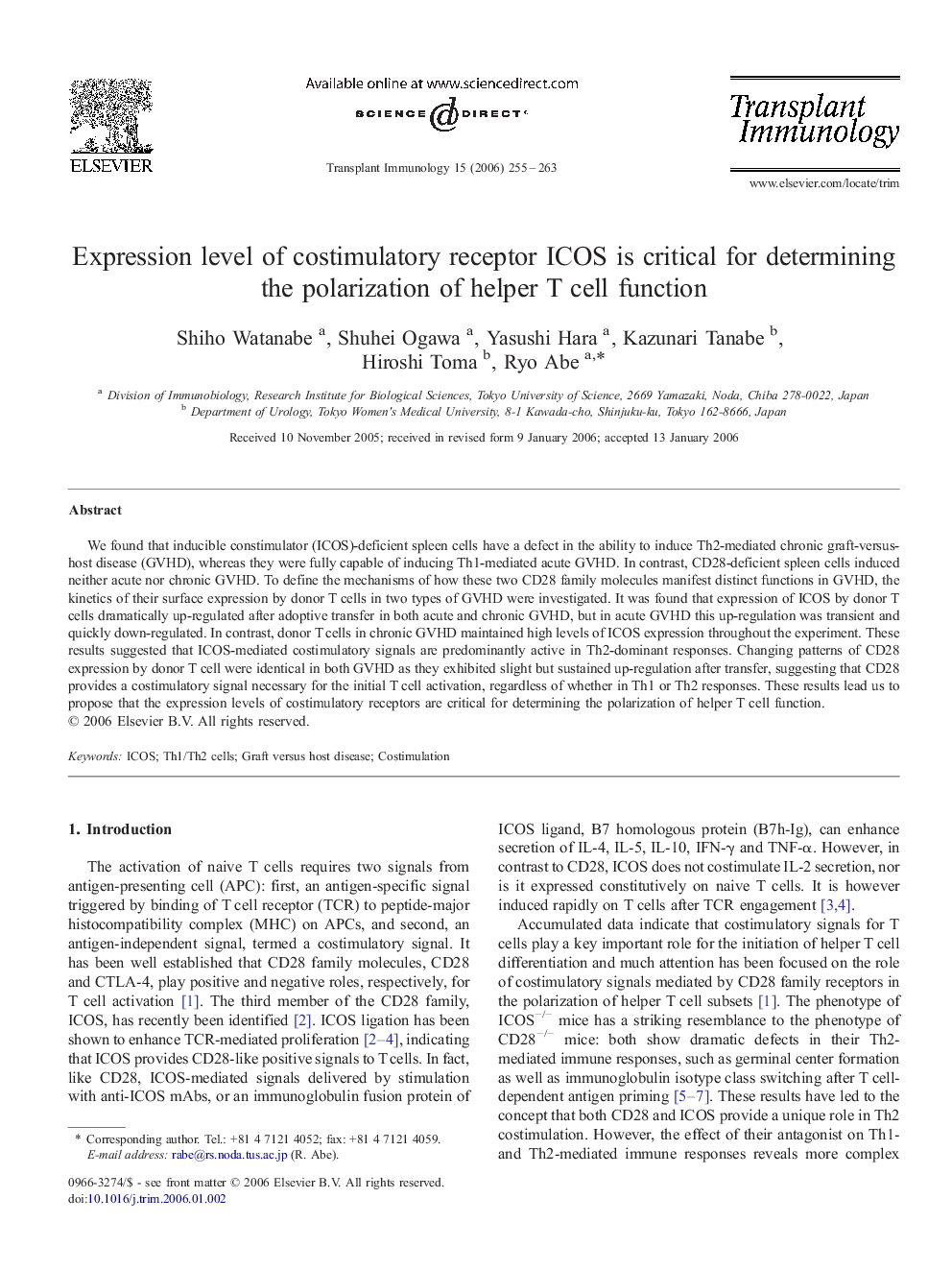| Article ID | Journal | Published Year | Pages | File Type |
|---|---|---|---|---|
| 3392713 | Transplant Immunology | 2006 | 9 Pages |
We found that inducible constimulator (ICOS)-deficient spleen cells have a defect in the ability to induce Th2-mediated chronic graft-versus-host disease (GVHD), whereas they were fully capable of inducing Th1-mediated acute GVHD. In contrast, CD28-deficient spleen cells induced neither acute nor chronic GVHD. To define the mechanisms of how these two CD28 family molecules manifest distinct functions in GVHD, the kinetics of their surface expression by donor T cells in two types of GVHD were investigated. It was found that expression of ICOS by donor T cells dramatically up-regulated after adoptive transfer in both acute and chronic GVHD, but in acute GVHD this up-regulation was transient and quickly down-regulated. In contrast, donor T cells in chronic GVHD maintained high levels of ICOS expression throughout the experiment. These results suggested that ICOS-mediated costimulatory signals are predominantly active in Th2-dominant responses. Changing patterns of CD28 expression by donor T cell were identical in both GVHD as they exhibited slight but sustained up-regulation after transfer, suggesting that CD28 provides a costimulatory signal necessary for the initial T cell activation, regardless of whether in Th1 or Th2 responses. These results lead us to propose that the expression levels of costimulatory receptors are critical for determining the polarization of helper T cell function.
